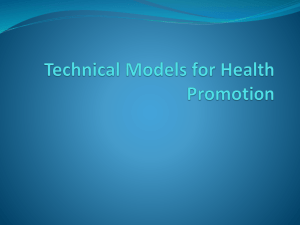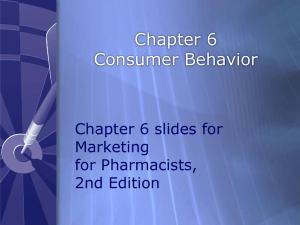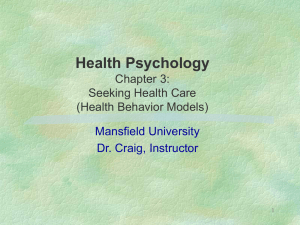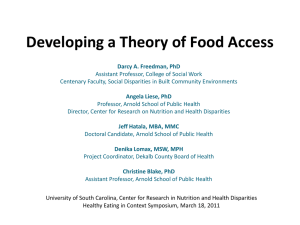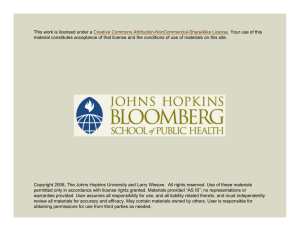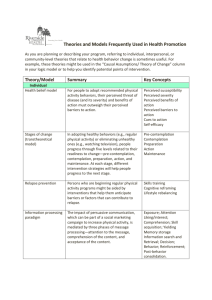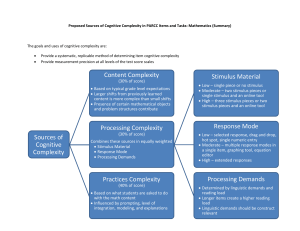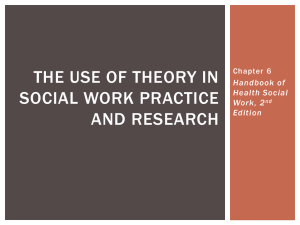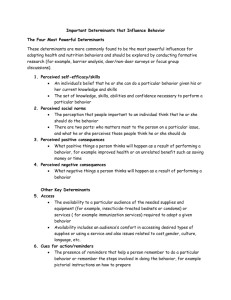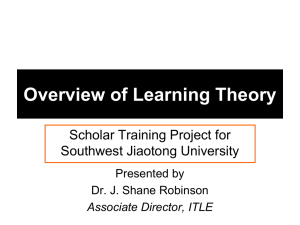Chap 7 PPT
advertisement
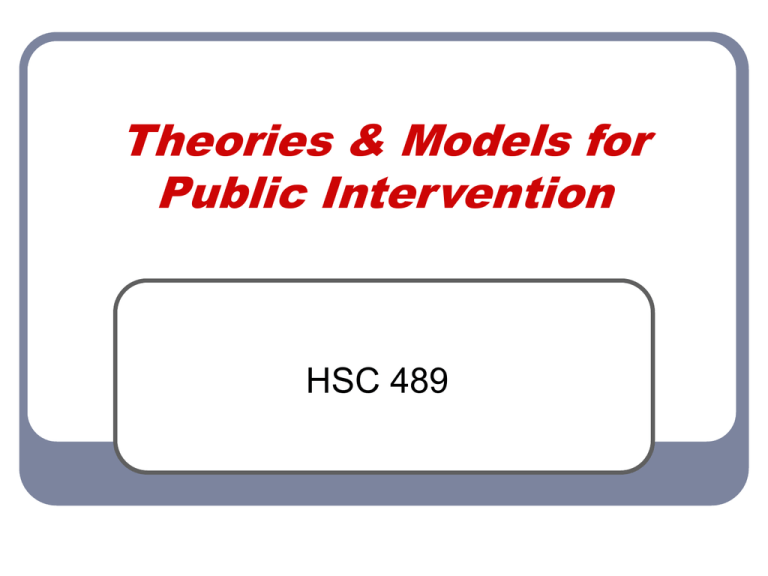
Theories & Models for Public Intervention HSC 489 Why theory? Why models? Provides a foundation Saves time & effort Furthers the profession Strengthens future efforts Remember this? : Theory versus Model A theory is… Summary of formal or informal observations presented in a systematic way Helps to explain, predict, describe, or manage behavior developed over time A model is… based on a theory A how to A framework (guidelines) for intervention The Parts of A Theory Concepts – the primary elements of the theory Constructs – a concept developed or adopted for use in a particular theory Variables – operational forms of constructs (determine how a construct will be measured) Some Useful Theories/Models Stimulus Response Theory Social Cognitive Theory Theory of Reasoned Action Theory of Planned Behavior Health Belief Model Transtheoretical Model (SofC) Stimulus Response Theory Based on (classical & instrumental) Conditioning Learning results from events (reinforcements) Consequences of behavior Reinforcement (Negative and Positive) or Punishment (Negative and Positive) Social Cognitive Theory: Efficacy + Outcome Expectations Efficacy Expectations: Self-efficacy Believe you can! It’s not self-esteem It’s task-specific Developed through shaping Outcome Expectations: Believe it will make a difference! Reciprocal determinism: person, behavior, environment Locus of control: internal vs. external Individuals become more selfefficacious in 4 ways: Thru performance accomplishments Thru vicarious experience A result of verbal persuasion Thru emotional arousal arousal Three More Theories/Models: In A Nutshell... Theory of Reasoned Action Short Version of TPB Health Belief Model Perceived threat = perceived susceptibility + perceived severity Perceived barriers Transtheoretical Model Stages of Change Theory • • • • • Precontemplation Contemplation Preparation Action Maintenance Decisional Balance Self-Efficacy Processes of Change What was that?! Stimulus Response T. Social Cognitive T. T. of Reasoned Action T. of Planned Behavior Health Belief M. Transtheoretical M. Intervention Ideas Use micro & macro Build incentives, attach to rewards Avoid scare tactics Avoid mandates Shape behaviors Foster ownership Use social support Resources Theory at a Glance: A Guide for Health Promotion Practice (NIH pub) http://cancer.gov/cancerinformation/theoryat-a-glance
